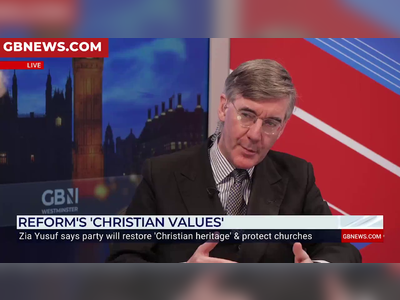Negotiations on Pension Reform and Budget 2025 Gain Momentum in France
François Bayrou navigates complex political waters as discussions unfold between employers and unions.
Negotiations surrounding France's pension reform and budget for 2025 are taking an unexpected turn, as the possibility of an agreement between employer representatives and unions has emerged.
Prime Minister François Bayrou, often adept at defying predictions, appears to be steering through political challenges to facilitate a compromise on pension reform, which has been a contentious issue in French politics.
At the beginning of the year, Bayrou narrowly avoided significant political backlash by securing the abstention of socialists and the National Rally during the budget review process.
Integral to these discussions was the controversial proposal for a conclave tasked with revisiting the 2023 pension reform, with the objective of restoring the financial equilibrium of the pension system by 2030.
Initial stages of negotiations faced turbulence, with major unions such as Force Ouvrière (FO) and the General Confederation of Labor (CGT) withdrawing alongside the Union of Proximity Enterprises (U2P).
However, three unions—the French Democratic Confederation of Labour (CFDT), the French Confederation of Management - General Confederation of French Work (CFE-CGC), and the Confederation of French Workers (CFTC)—continued to engage in discussions alongside key employer groups, including the Confederation of Small and Medium-Sized Enterprises (CPME) and the Movement of French Enterprises (Medef).
As the final negotiation session approaches, stakeholders express cautious optimism.
There is an expectation that the pivotal age for retirement will remain at 64, a point that the CFE-CGC appears to accept, while the CFDT seems ready to accommodate—provided certain concessions are made regarding pension calculations for women and the reintegration of criteria for hardship that were removed in 2017.
To address the financial shortfalls within the pension system, two potential measures have been proposed: increasing the Contribution Sociale Générale (CSG) for wealthier retirees or limiting the adjustment of pensions in relation to inflation until 2030. These topics are set to be resolved in the upcoming session.
Furthermore, Medef has suggested reducing the early retirement age from 62 to 61 for cases of incapacity or disability, though the CFTC has voiced hesitance, seeking discussions on a later retirement age for full pensions, currently set at 67 years.
Medef opposes this alteration, citing concerns over the long-term viability of pension financing.
The discussions are marked by the fact that the CFTC's agreement is not essential for the finalization of the accord, which Prime Minister Bayrou is committed to presenting to the Parliament.
As the resolution of the pension deficit remains a significant focus, it is anticipated that political reactions surrounding the National Rally and the Socialists will play a crucial role in the final outcome of these negotiations.
Prime Minister François Bayrou, often adept at defying predictions, appears to be steering through political challenges to facilitate a compromise on pension reform, which has been a contentious issue in French politics.
At the beginning of the year, Bayrou narrowly avoided significant political backlash by securing the abstention of socialists and the National Rally during the budget review process.
Integral to these discussions was the controversial proposal for a conclave tasked with revisiting the 2023 pension reform, with the objective of restoring the financial equilibrium of the pension system by 2030.
Initial stages of negotiations faced turbulence, with major unions such as Force Ouvrière (FO) and the General Confederation of Labor (CGT) withdrawing alongside the Union of Proximity Enterprises (U2P).
However, three unions—the French Democratic Confederation of Labour (CFDT), the French Confederation of Management - General Confederation of French Work (CFE-CGC), and the Confederation of French Workers (CFTC)—continued to engage in discussions alongside key employer groups, including the Confederation of Small and Medium-Sized Enterprises (CPME) and the Movement of French Enterprises (Medef).
As the final negotiation session approaches, stakeholders express cautious optimism.
There is an expectation that the pivotal age for retirement will remain at 64, a point that the CFE-CGC appears to accept, while the CFDT seems ready to accommodate—provided certain concessions are made regarding pension calculations for women and the reintegration of criteria for hardship that were removed in 2017.
To address the financial shortfalls within the pension system, two potential measures have been proposed: increasing the Contribution Sociale Générale (CSG) for wealthier retirees or limiting the adjustment of pensions in relation to inflation until 2030. These topics are set to be resolved in the upcoming session.
Furthermore, Medef has suggested reducing the early retirement age from 62 to 61 for cases of incapacity or disability, though the CFTC has voiced hesitance, seeking discussions on a later retirement age for full pensions, currently set at 67 years.
Medef opposes this alteration, citing concerns over the long-term viability of pension financing.
The discussions are marked by the fact that the CFTC's agreement is not essential for the finalization of the accord, which Prime Minister Bayrou is committed to presenting to the Parliament.
As the resolution of the pension deficit remains a significant focus, it is anticipated that political reactions surrounding the National Rally and the Socialists will play a crucial role in the final outcome of these negotiations.











